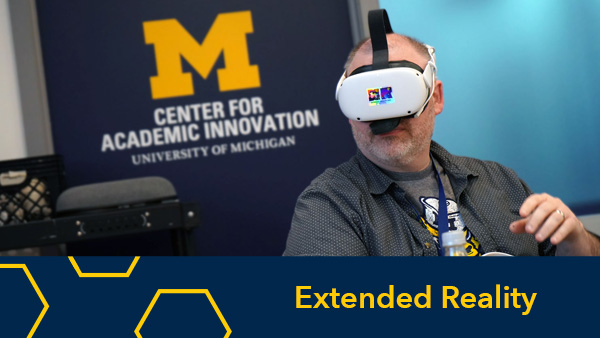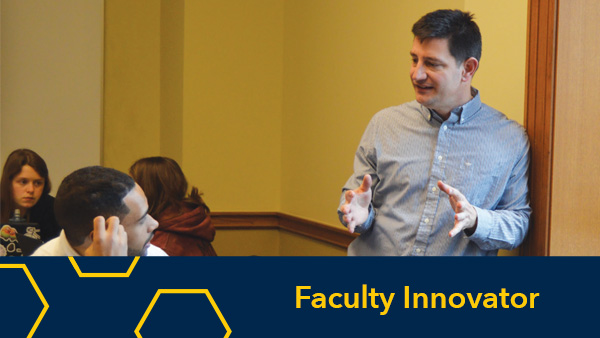Parnia Mazhar, Communications Writing Fellow
@ParniaMazhar
Retracing the steps of a University of Michigan professor nearly 100 years ago, 18 undergraduate students from the U-M and other universities ventured to Greenland where they examined the transformation of the glacial island due to climate change.
The students from U-M, the University of Albany and Virginia Tech were continuing the work first started in 1926 by U-M geology professor William Herbert Hobbs.
Using drones and more traditional video equipment, Sean Curtis Patrick, Media Design and Production Lead at the Center for Academic Innovation, documented the expedition. Their travels, along with 4K remastered footage of the original 1926 expedition and a 3-D map of the Russell Glacier, formed “Melting Ice Rising Seas Teach-Out,” a new online learning experience for those interested in learning more about climate science and the impact of climate change on arctic regions. This self-guided Teach-Out walks learners through the reality of climate change as evidenced by the melting glaciers in Greenland.
Students who attended the expedition lead conversations with faculty and climate scientists throughout the Teach-Out. Several of the students reflected on their experience taking part in the Greenland expedition.
Lydia Gilbert
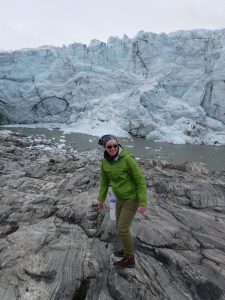 Hometown: Ann Arbor, Michigan
Hometown: Ann Arbor, Michigan
Class Standing: Sophomore
Academic Program: College of Engineering, Climate & Meteorology – Climate Science & Impacts Engineering
What interested you about participating in the Greenland expedition?
The fact that we’d get to do field research in Greenland! How often do you get the opportunity to do something like that as an undergraduate?
What was an unexpected fact that you learned from this expedition?
Glaciers can fling ice chunks the size of baseballs at least a hundred meters (depending on the size of the glacier) when they calve.
What should more people know about climate science?
That you don’t have to be a scientist to participate. There are lots of ways for people to become involved through citizen science.
What was your favorite part about/biggest takeaway from this experience?
My favorite part of the trip was going to the Russell Glacier calving front. It was the first time I really understood the scale of glaciers, and I was able to hear rumbling and crackling from within the glacier, which was so cool. My biggest takeaway from this trip is that I’m going to become a glaciologist.
Marc Koerschner
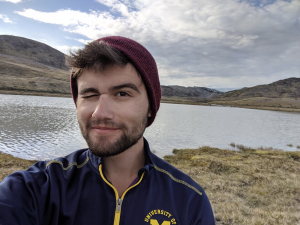 Hometown: Iron Mountain, Michigan
Hometown: Iron Mountain, Michigan
Class Standing: Senior
Academic Program: College of Engineering, Aerospace Engineering
What interested you about participating in the Greenland expedition?
The idea of a real-life field research opportunity, as well as being able to do meaningful work for our planet.
What was an unexpected fact that you learned from this expedition?
The many towns of Greenland are starting to revert back to their original indigenous titles, instead of the Danish titles placed on them.
What should more people know about climate science?
Climate science should be a very diverse field but is actually very segregated. Representation of minorities is slim in the field, which is a shame as climate clearly affects everyone from all backgrounds.
What was your favorite part about/biggest takeaway from this experience?
My favorite part of the whole experience was seeing the glacier proper and realizing just how crucial it is for us to protect our environment. It can be difficult to put all of that into scope without having seen such a marvel first-hand.
McKenzie Zauel
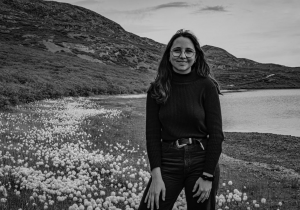 Hometown: Hartland, Michigan
Hometown: Hartland, Michigan
Class Standing: Senior
Academic Program: College of Engineering, Environmental Engineering
What interested you about participating in the Greenland expedition?
The chance to get research experience in the field and learn more about how the Greenland ice sheet influences climate change.
What was an unexpected fact that you learned from this expedition?
Greenland has interesting native plants, like wild arctic blueberries and arctic cotton.
What should more people know about climate science?
More people should know that climate is intertwined with every other facet of life on earth. Everything is interconnected and things affect one another in very surprising ways.
What was your favorite part about/biggest takeaway from this experience?
My favorite part of this trip was having the opportunity to travel to the summit of the ice sheet.
